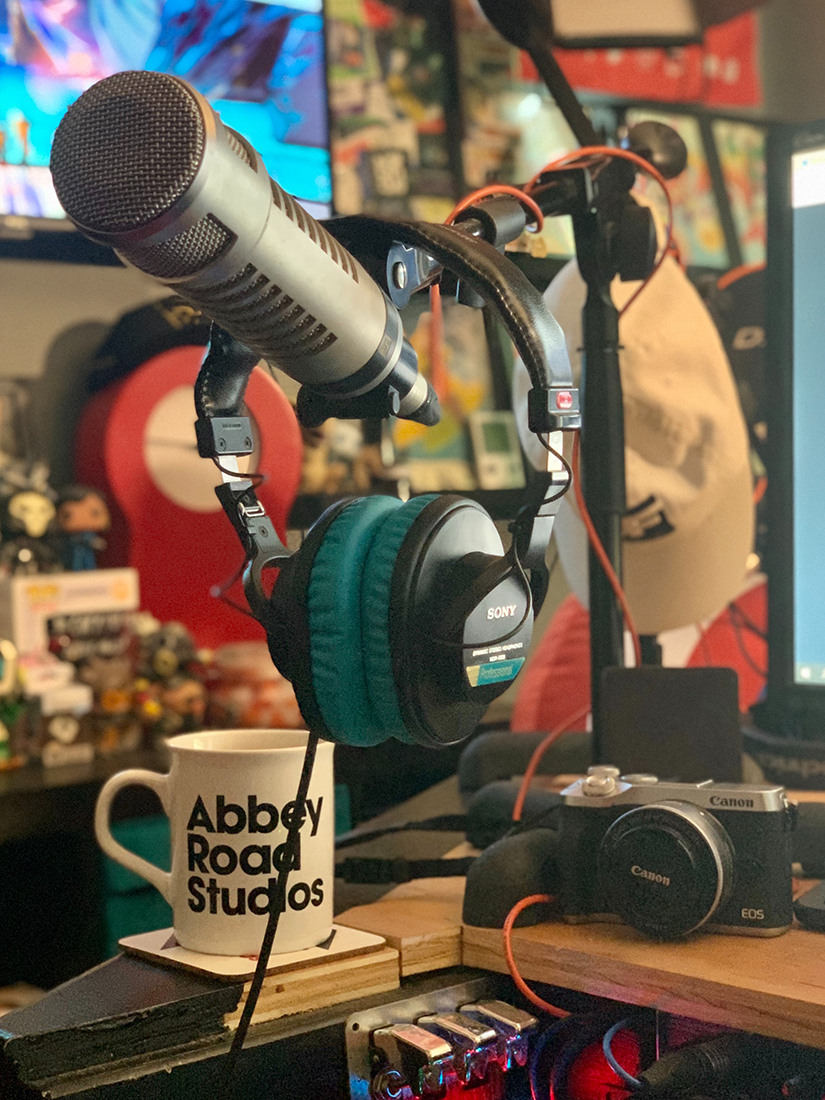In the digital age, where information is at our fingertips, podcasting has become a cultural phenomenon, reshaping the way we consume content and giving a voice to individuals from diverse walks of life. This intensive exploration takes us on a journey through the origins of podcasting, introduces us to influential podcasters, delves into the mechanics of creating a podcast, discusses monetization strategies, and explores the symbiotic relationship between social media and podcasting.
The Genesis of Podcasting
Podcasting, born from a blend of the words ‘iPod’ and ‘broadcasting,’ traces its roots to the early 2000s. Pioneered by Dave Winer and Adam Curry, their creation, “Scripting News,” marked the inception of what would become a global phenomenon[1]. Initially a niche medium, podcasting gained traction with the launch of platforms like Apple Podcasts, making it accessible to a broader audience.
Trailblazers of the Podcasting Landscape
The podcasting landscape is rich with diverse voices and compelling narratives. Top podcasters have achieved celebrity status, with names like Joe Rogan, host of “The Joe Rogan Experience,” leading the pack. His long-form interviews with a spectrum of guests have garnered millions of listeners[2]. Other noteworthy podcasters include Ira Glass of “This American Life,” Sarah Koenig of “Serial,” and Jad Abumrad and Robert Krulwich of “Radiolab.”
Diverse Topics and Social Media Stardom
Podcasting has transcended conventional boundaries, covering topics ranging from true crime to self-help, technology, and beyond. The rise of social media platforms like Instagram, Twitter, TikTok, and the recent acquisition of Twitter by Elon Musk’s “X” has propelled podcasters into the spotlight. Social media not only serves as a promotional tool but has birthed new podcasting stars who leverage these platforms to cultivate engaged communities.
Platforms Paving the Podcasting Pathway
For aspiring podcasters, selecting the right platform is crucial. Among the top contenders are Apple Podcasts, Spotify, Google Podcasts, Stitcher, and Podbean[3]. Each platform offers unique features and caters to different audience demographics. Choosing the right platform is a strategic decision that influences the reach and visibility of the podcast.
Essential Equipment for Aspiring Podcasters
Creating a podcast requires minimal equipment, and technological advancements have made the process more accessible. A quality microphone, audio interface, headphones, and recording/editing software are essential. Recommendations include the Shure SM7B microphone, Focusrite Scarlett 2i2 audio interface, and Audacity or GarageBand for editing[4].
Avoiding Duplication: The Podcast Name Portal
To ensure uniqueness and avoid duplicating existing podcast names, an online portal has been created for creators. Podcasters can check the availability of their desired show name through platforms like Podcast Name Check[5]. This tool aids in establishing a distinctive brand identity in the vast podcasting landscape.
Monetization Strategies for Podcasters
Monetizing a podcast involves various strategies, including sponsorships, listener donations, and affiliate marketing. Platforms like Patreon enable creators to receive direct financial support from their audience[6]. Additionally, dynamic ad insertion allows for the seamless integration of advertisements, creating revenue streams for podcasters.
Audio vs. Video Podcasting: Bridging the Divide
Podcasting’s evolution has given rise to video podcasts, providing a visual dimension to the audio-centric medium. Video podcasts, hosted on platforms like YouTube, extend the reach by tapping into visual storytelling. However, the essence remains the same: delivering engaging and valuable content to a dedicated audience.
Harnessing the Power of Social Media
The integration of podcasting with platforms like YouTube, TikTok, Instagram, Twitter (now “X”), and Elon Musk’s visionary endeavors has transformed how podcasts are promoted. Cross-platform promotion and collaboration with influencers amplify a podcaster’s reach, leveraging diverse audiences and fostering a sense of community.
In the ever-evolving symphony of digital expression, podcasting stands as a testament to the democratization of storytelling. It is a medium where authenticity reigns supreme, transcending boundaries and providing a platform for diverse voices. As we navigate the intricate landscape of podcasting, let’s embrace the unique narratives, explore uncharted territories, and revel in the magic of genuine connections forged through the airwaves. Quoting the words of Marc Maron: “Podcasting is a way of thinking out loud and finding out what’s interesting.” And reflecting on the wisdom of Jay Baer: “Podcasting is a redemptive medium. It gives people a second chance to be heard and tell their story.” As the podcasting odyssey unfolds, let us continue to amplify the power of authentic voices, captivate audiences, and make a lasting impact on the ever-expanding canvas of digital storytelling. After all, in the world of podcasting, the journey is as enriching as the destination.
In conclusion, podcasting has evolved from a niche endeavor to a dynamic and influential medium, fostering diverse voices and providing a platform for authentic storytelling. Aspiring podcasters must navigate the intricate landscape, utilizing the right equipment, platforms, and promotional strategies to carve their niche in the digital space. The synergy between social media and podcasting continues to reshape the industry, opening new frontiers for creators and listeners alike. Happy podcasting!
Keywords: Podcasting Podcasting history Top podcasters Social media and podcasting Podcasting platforms Podcasting equipment Monetization strategies Audio vs. video podcasting Social media promotion Elon Musk Podcasting community Unique podcast names Podcasting landscape Aspiring podcasters Cross-platform promotion Digital storytelling Authenticity in podcasting Joe Rogan Experience True crime podcasts Podcasting technology
[1] Scripting News Dave Weiner
[3] Podcast Platforms Comparison
